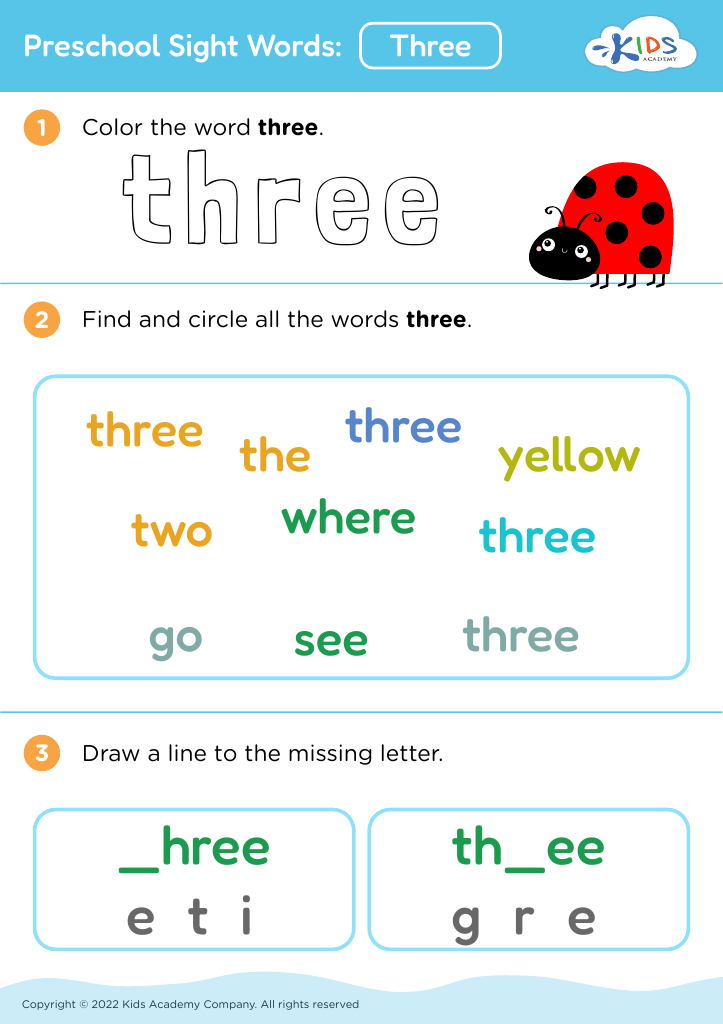Multiplication practice Reading Worksheets for Ages 3-6
4 filtered results
-
From - To
Discover our Multiplication Practice Reading Worksheets designed specifically for children ages 3-6! These engaging worksheets make learning multiplication fun and interactive, allowing young learners to build essential math skills while enhancing their reading comprehension. Each worksheet is carefully crafted to combine visual aids and age-appropriate challenges, ensuring that kids remain motivated and excited about learning. With vibrant illustrations and varied activities, our multiplication practice materials help strengthen foundational math concepts in an enjoyable way. Perfect for home or classroom use, these worksheets support early childhood education and promote a love for learning in young minds. Start your multiplication journey today!
Parents and teachers should care about multiplication practice for children aged 3-6 because early math skills lay the foundation for future learning. Although formal multiplication may not be introduced until later years, early exposure to mathematical concepts can significantly benefit cognitive development. Engaging preschoolers in activities that involve counting, grouping, and recognizing patterns primes their brains for understanding multiplication.
Moreover, incorporating storytelling and reading that highlights arithmetic can make these concepts accessible and fun. As literature often emphasizes relationships between numbers in relatable scenarios, it helps children grasp the relevance of multiplication in daily life. Early engagement with math also enhances problem-solving and critical thinking skills, which are essential for academic success across all subjects.
Additionally, building a strong math foundation in the early years can help alleviate math-related anxiety later in school. When children start learning multiplication concepts early within a playful context, they develop a positive attitude toward math. This not only encourages curiosity but also fosters a lifelong appreciation for learning. Therefore, integrating multiplication practices with reading and play for young children can significantly contribute to their overall intellectual growth and confidence in their mathematical abilities.

























